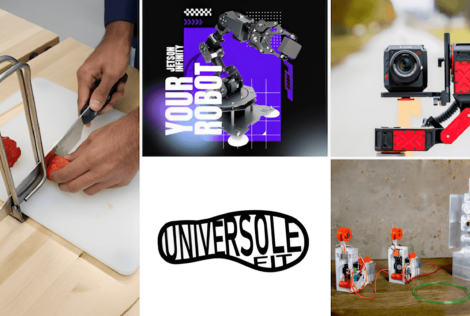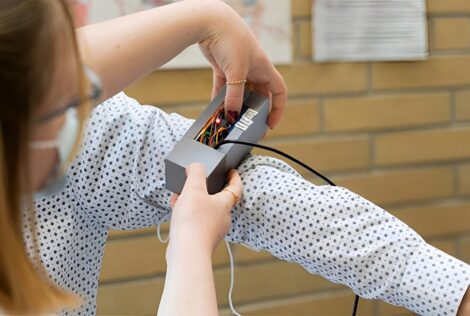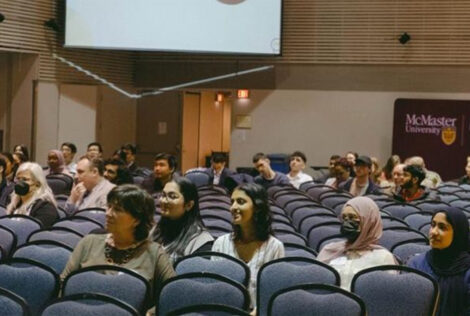
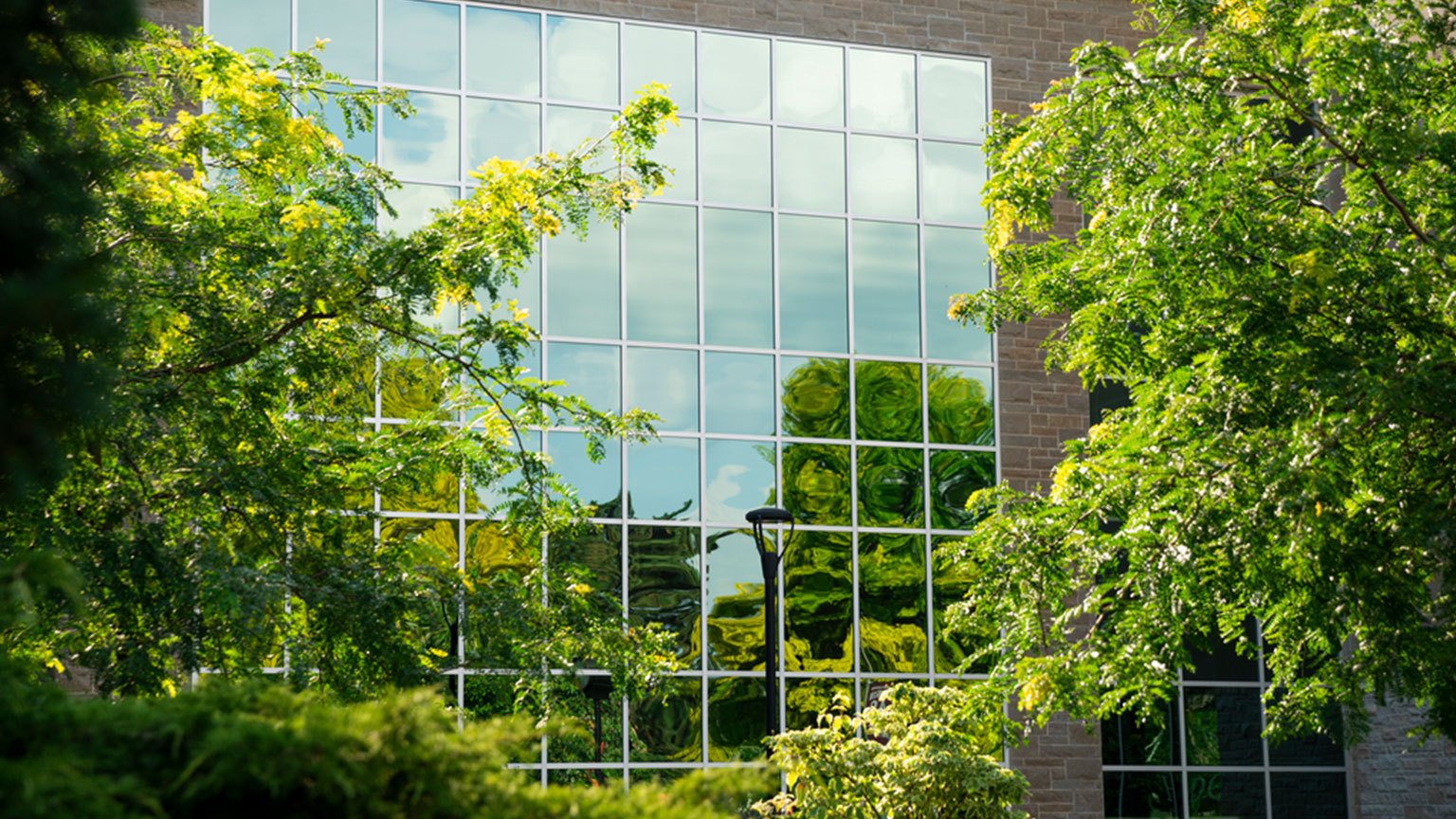
Hosam Abdel Hafeez, Taha Parvez and Vikash Nanthakumar are third year iBioMed students who are the co-founders of AIRefer, offering a centralized medical referral system. AIRefer was recently accepted to The Forge Business Incubator at McMaster University, receiving $3,000 in seed funding, mentorship, dedicated office space and access to their investor referral program.
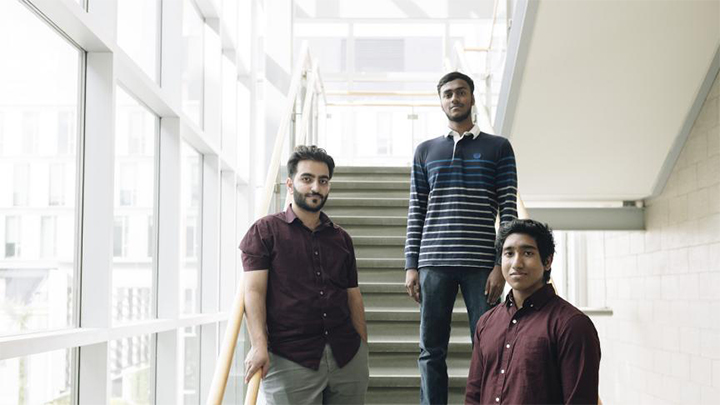
Their journey began a year ago when they enrolled in the MacChangers, a co-curricular program that pairs multidisciplinary teams with community partners to propose innovative solutions to local challenges facing the Hamilton community, as well as the global community. It was through MacChangers that the team’s interests and passions merged when they met with doctors, specialists and patients and saw a need for change.
Here’s what the three Health, Engineering Science and Entrepreneurship (HESE) Specialization students had to say:
Q: Can you describe your start-up idea?
A: Hosam: It started off by observing a need in the community. We noticed that within the hospital referral system there were a lot of inefficiencies and time that was wasted. We wanted to improve the quality of care from a technological standpoint. So, we developed a referral system, called AIRefer, that uses machine learning. Our vision is that the patient will walk into the family doctor’s office and will come out with a specialist appointment already booked.
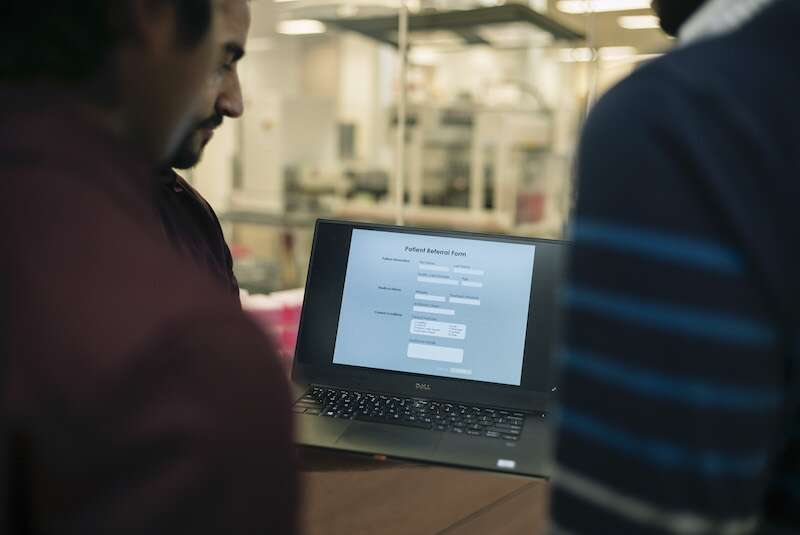
Q: What role would you say MacChangers had in your start-up idea?
A: Hosam: I think it played a huge role as MacChangers gives you the opportunity to try to develop your ideas and let them grow without having external curriculum moulding it. MacChangers gives you a lot support through mentors who keep you on track and there’s no stakes attached since it’s not a course.
Vikash: A lot of opportunities we got were because of the network we were able to establish and that is due to MacChangers.
Q: Why are you passionate about this?
A: Vikash: We are all in the Health, Engineering Science and Entrepreneurship (HESE) Specialization and were passionate about health, science, and engineering coming into university. Working on a project like this through MacChangers not only means we get to work on a project we are passionate about, but we also get to incorporate what we have learned over the past three years. It’s different from just learning something, it’s an amazing opportunity to be able to apply it to a real life setting. It was a great opportunity to try something new and merge my interests.
Q: If you could give any advice to a student interested in enrolling in MacChangers, what would you say?
A: Hosam: I’d say absolutely do it! Always be open to trying new things. Approach MacChangers not as you would a class where you’re trying to get something done and out of the way. Approach it as a passion of yours and try to explore what you can do with MacChangers.
Taha: With the program you shouldn’t be afraid to think outside the box. If it was for a class and something didn’t work out, you would think you are going to get a bad mark, but with the program there are no repercussions for an idea that doesn’t work.
Vikash: It’s something that you get out what you put into it. If you’re really passionate about some idea or design or project, if you put the time and effort in, and take advantage of the opportunities you have with MacChangers, you can go really far with it.
Q: What was your most valuable takeaway from the project you undertook during MacChangers?
A: Vikash: I think the biggest thing is don’t be afraid of being wrong because often times you learn more from your mistakes and you can only develop an idea if you are exposed to the flaws.
Taha: MacChangers showed that the best way to learn is to speak to people. We were able to speak to so many professionals and patients that have dealt with the health care referral system. That’s something you can’t learn in a textbook.
Q: How important would you say engaging with the community is?
Hosam: We learned that in order to define a problem, it requires you to go out to the community and actually speak to people.
Q: What knowledge, skills, and abilities did you develop in MacChangers and continue to utilize in your personal and professional role(s)?
A: Vikash: A lot of it is the soft skills in terms of networking, setting up meetings with people you have never met, and being able to ask the right questions.
Taha: The speed interviews really helped us develop these skills. Now when we go to speak to others, we are more experienced and prepared in how to make the most out of meetings.

